
Poker Strategy
Welcome to our Poker Strategy Articles section. Poker is a game of strategy. Anyone that tells you differently is ignorant or a losing poker player. If you study the game and the strategies, you will understand the tactics to becoming a winning player, improve your game, and ultimately win money. We at ITH have accumulated the most comprehensive collection of texas holdem articles to help you learn, gain confidence and most importantly WIN.
We incorporate strategiy discussions on everything from playing hands to winning the mental game. Peruse the sub-categories here or browse all our strategy articles below.
For more poker strategy content, visit our Poker Forum Strategy sections and join in the discussions!

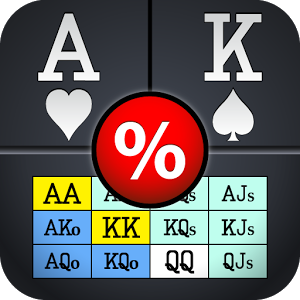
The Nut-Flush Draw
the strength and strategy of playing the nut-flush draw in pot-limit Omaha, illustrating its power against various hand combinations, even when up against strong hands like A-A-X-X
Some Mistakes Down Under
author's experiences and strategic errors during poker tournaments in Melbourne, particularly during the Aussie Millions event, emphasizing the importance of decision-making, pot odds, and risk assessment, while also highlighting the vibrant poker scene and unique personalities in the Australian and New Zealand poker community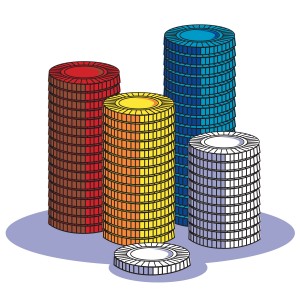
Are Satellite Tournaments a Good or Bad Value?
the value and strategy of playing in satellite poker tournaments, cautioning players against entering satellites where they'd be outmatched in the main event, and emphasizing that while satellites offer a chance to play in bigger tournaments, they often lead to suboptimal play due to the high stakes and unfamiliarity with deep-stack dynamics
Poker Bankroll Mistakes that Cost the Most
significant mistakes poker players make concerning their bankrolls, emphasizing the importance of proper bankroll management, avoiding distractions from other casino games, the dangers of poor game selection, and the negative impact of berating less skilled players
Is Poker Gambling or Skill?
the longstanding debate regarding poker's classification, examining whether it's predominantly a game of chance or skill, and highlights that while poker involves elements of both luck and strategy, it's the blend of these factors that makes it unique, challenging the traditional definitions of gambling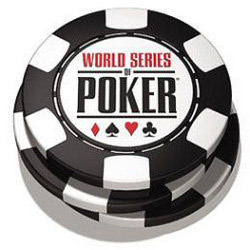
Fixing World Series of Poker Structures for PLO
discusses the disparities in starting stack depths between pot-limit Omaha (PLO) and no-limit hold'em (NLH) tournaments at the World Series of Poker, arguing that PLO tournaments should have deeper starting stacks to be comparable to their NLH counterparts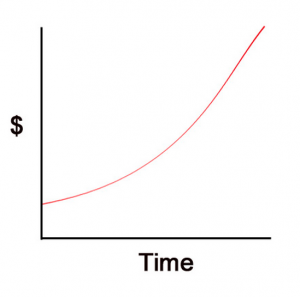
Playing Sit n Go’s for Profit
chronicles the author's journey from initial online poker losses to eventual success, emphasizing the profitability of Sit 'N' Go tournaments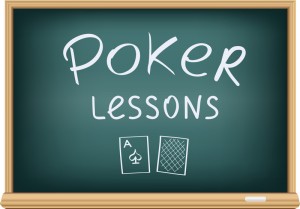
Re-buy Tournament Strategy
the tactics and considerations for playing in Re-buy & Add-on (R&A) poker tournaments, emphasizing the distinct playstyle during the first hour, the importance of strategic re-buys and add-ons, and the need to adapt to the aggressive nature of such tournaments
Poker Table Chat
the intricacies of online poker table chat, recommending caution as it can inadvertently reveal strategies, but also highlighting its potential strategic benefits
Quiz: Playing with the Initiative, Combination-Call, and Value-Betting River
Playing with the initiative, making a combination-call, and value-betting the river It's a five-handed 50¢-$1 pot-limit Omaha game online (six-max).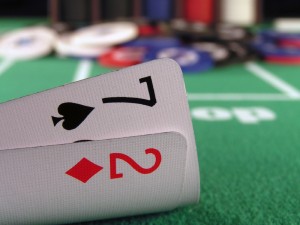
Positional Advantage in Pot-Limit Omaha
the inherent advantage of position in poker, emphasizing that the ambiguity of a bet from a late position, such as the button, can naturally deceive opponents, making them more likely to make mistakes, especially when they perceive the bet as a potential steal
Winning the Full Tilt Poker $750,000 Event
the author's experience and strategies in winning the Full Tilt Poker tournament, emphasizing the importance of "restealing" and highlighting specific hands that played a crucial role in their victory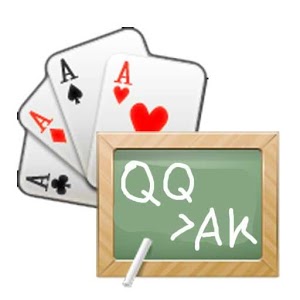
Pot-Limit Omaha Hand Quiz 3
insights into post-flop strategies in Pot-Limit Omaha, focusing on the importance of understanding opponent behavior, the value of the positional advantage, and the effectiveness of bluff-raising when faced with potential air bets
The World Series of Poker Bubbles
unique dynamics of various "bubble" situations in the World Series of Poker, highlighting strategies to exploit these phases, especially the day-one bubble and cash bubble, where players' risk-averse behaviors can be leveraged for advantage
Reflections on My Results at the 2008 World Series of Poker
personal experiences and disappointments during the 2008 World Series of Poker, emphasizing the unpredictability of tournament outcomes despite thorough preparation
High Value Limit Holdem Bluffs
the art of bluffing in limit hold'em, discussing its significance in modern, tighter games and presenting five specific situations where bluffing can yield significant equity
Skills Learned Playing Short-Handed Limit Holdem
the unique skills and strategies required for short-handed limit hold'em, highlighting the importance of player categorization, adaptability, and aggression, while also discussing the benefits of playing in such settings, including the ability to better read opponents and capitalize on their mistakes
Working in Your Underwear: The Pitfalls of Comfort
the potential pitfalls of becoming too comfortable while playing online poker, emphasizing the importance of maintaining a disciplined posture and behavior to avoid developing bad habits that could be detrimental in live games, and offers strategies to ensure one remains engaged and alert during online sessions
Limit Hold’em Quiz
Playing the Nuts Most players love to discuss hands when the value of a hand is not very clear.
Raising Draws for Value in Limit Holdem
the strategic nuances of when to raise or call with drawing hands in limit hold'em, emphasizing that players often undervalue their big draws on the flop and that understanding the best hand isn't always about having a made hand, but rather the hand with the highest probability of winning by the river
Mixed Hold’em
introduces a new form of poker that combines elements of limit, pot-limit, and no-limit hold'em, aiming to create more post-flop action and excitement for both players and viewers, with the game transitioning from limit play pre-flop, to pot-limit on the flop, and finally to no-limit on the turn and river, thus emphasizing post-flop skills and offering a dynamic playing experience
Poker Bankroll Strategy : Wipeout
the challenging reality that poker players might face when they lose their entire bankroll, emphasizing the importance of understanding the reasons behind such losses, whether it's due to skill level, tilt, poor bankroll management, or sheer bad luck
Profiling Errors
common mistakes players make when profiling their poker opponents, such as stereotyping based on initial perceptions, giving undue weight to early observations (primacy effect), and making assumptions based on one's own characteristics (projection)
Three-Betting Preflop
strategic nuances of three-betting with marginal hands in poker, using hand examples from three different authors to illustrate the thought processes and considerations behind such plays
The Reverse Float
the concept of "reverse float" in poker, which refers to floating from an out-of-position stance, highlighting its risks and offering guidelines for its execution
Choosing a Poker Site : Decision, Decisions, Decisions
the various considerations and decisions a poker player should make before starting a game, including selecting the right poker site, game type, table format, betting structure, and even factors like the time of day to play
The Realities of a Re-buy Tournament
insights into the strategies and considerations for playing in Re-buy and Add-on (R&A) poker tournaments, emphasizing the importance of managing one's bankroll, understanding the dynamics of the initial re-buy phase, and adapting to the aggressive playstyle often seen in these tournaments
More Poker Lessons From My Daughter
author's experiences teaching his daughters poker, highlighting a particular game where one daughter's play style was perceived as fearless and unpredictable
Staying in School and Poker as a Career
the importance of completing one's education before considering poker as a full-time career, highlighting the risks and challenges of professional poker, the evolving nature of the game, and the potential long-term implications of a career gap on one's résumé
River Bluffs in Limit Hold’em
the strategy of bluffing on the river in limit hold'em, emphasizing the importance of recognizing situations where bluffing can be profitable, even if it doesn't succeed every time
The Danger of Optimism : Texas Holdem Odds
cautions poker players against the pitfalls of excessive optimism, explaining that while a positive mindset can be beneficial in many life situations, in poker, overestimating odds or making assumptions based on hope rather than logical analysis can lead to suboptimal strategies and significant losses
Short Stack Strategy in Limit Holdem
the importance of understanding how to play against short-stacked players in limit hold'em, emphasizing that while many players overlook this aspect, it's crucial to adjust one's strategy when facing opponents with smaller stacks
Switching from Limit to No-Limit Holdem
discusses the author's transition from playing limit hold'em to no-limit cash games, highlighting the key differences between the two formats and offering tips for limit players considering making the switch
Some Pot-Limit Omaha Hands
detailed strategy analysis of specific hands played in a pot-limit Omaha game at The Venetian in Las Vegas, illustrating various scenarios such as a delayed double-barrel bluff on a paired board, picking off a bluff by check-calling, and executing a delayed dry-ace bluff
PLO Quiz 3
A low SPR situation - Excerpt from Jeff’s book, Advanced Pot-Limit Omaha Volume II: LAG Play and The Short-Handed Workbook.
Omaha Hi-Lo Odds – Put Tilt in Perspective
the importance of aligning poker expectations with statistical realities, particularly in Omaha Hi-Lo, discussing how players often tilt due to unrealistic hopes, and providing insights into the probabilities of certain hand outcomes during the game to help players make informed decisions and avoid costly mistakes
The Basic Floats in PLO
strategies of floating in pot-limit Omaha, discussing various types of floats such as the naked float, weak-stab float, and semibluff float
Pot-Limit Omaha: Game Selection in Live Play
the challenges and considerations of selecting the right pot-limit Omaha (PLO) games in live settings, emphasizing the rapid scaling of stakes, the impact of uncapped buy-ins and the straddle option
Playing Trash Hands in Limit Hold’em
strategies for playing weak hands in limit hold'em, emphasizing that while playing strong hands is straightforward, there are situations where players might have no significant hand post-flop but can still leverage opportunities to bluff or steal pots, especially when considering pot odds, opponent tendencies, and the number of players in the hand
Winning Preflop in Omaha Hi-Lo
the importance of selective hand choice in Omaha Hi-Lo poker, highlighting that many beginners' primary mistake is playing too many starting hands, and underscores the value of well-coordinated hands that can win in both high and low directions, ultimately stressing that a player's edge largely comes from superior preflop decisions compared to opponents
Stack Size is Everything in Tournaments
how different stack sizes relative to the blinds can dictate varying strategies, from aggressive all-in pushes to more cautious play, and emphasizes the need for adaptability in both short-stack and deep-stack situations to optimize tournament performance
Why Every Poker Player is Unlucky
the inherent role of luck in poker, arguing that every player experiences both good and bad luck in various forms, and emphasizes the importance of recognizing these nuances, avoiding the trap of selective memory, and focusing on making informed decisions rather than dwelling on perceived injustices in the game
Profile of a Typical Omaha Hi-Lo Fish
common characteristics of inexperienced Omaha Hi-Lo players, highlighting their tendencies to play too loosely, misconceptions about hand quality and pot dynamics, and their lack of adaptability to the changing value of hands post-flop, ultimately providing insights into how seasoned players can exploit these weaknesses
One Year as a Professional Poker Player
leaving a traditional office job to becoming a full-time poker player, detailing the challenges, financial ups and downs, lessons learned, and the personal adjustments required for this unconventional career
Pot-Limit Omaha Hand Quiz
Playing top two pair, and the nut-flush draw - Here are a couple of hands from a $2-$5 game at The Venetian in Las Vegas.
PokerTek, Excalibur, and the PLO Revolution
the introduction of small-stakes pot-limit Omaha games on PokerPro electronic tables at the Excalibur Hotel and Casino in Las Vegas, emphasizing the advantages of electronic tables in facilitating smaller pot-limit Omaha games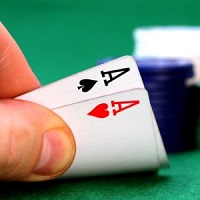
Starting Hand Chart
detailed hand charts to guide players on how to optimally play their starting hands in Texas Holdem, offering specific strategies based on one's position at the table and emphasizing the significance of making informed preflop decisions to gain an edge over opponents
The Complete Guide to Playing Poker Maniacs
strategies and tips for playing poker against aggressive players, often referred to as "poker maniacs," emphasizing the importance of patience, position, and hand selection
Selecting Good Poker Tables : Finding the Best Fish
strategies for identifying poker tables with inexperienced players, emphasizing the importance of observing player behaviors, usernames, and other indicators to maximize profit potential and exploit weaknesses in opponents' gameplay
Pot-Limit Omaha: The Future is Near
the rising popularity of pot-limit Omaha (PLO) in the poker world, highlighting its potential to become the next big trend in poker due to its action-packed nature and the blurred line between "made hand" and "drawing hand."
PLO Quiz 2
pot-limit Omaha poker scenarios set in a game at Excalibur in Las Vegas, offering readers multiple-choice questions on the best course of action in each situation
Don’t make the Biggest Mistake in Short-Handed Limit Holdem
the critical error many players make in shorthanded limit games: merely calling a raise against a single opponent
The Power of the Big Draw
the strength and strategic advantages of having big drawing hands in Omaha poker, particularly in deep-stack situations, explaining how these hands can dominate the game dynamics, allow for aggressive betting without fear of being priced out, and offer significant implied value when they hit
Seat Selection in PLO
the importance of choosing the right seat in Pot-Limit Omaha poker, highlighting the strategic advantage of having tight players on one's left and aggressive players or those with bigger stacks on the right, to optimize control and play with positional advantage
What do you do when you know you are beat?
discusses the strategic depth of poker, emphasizing the importance of reading opponents and understanding when to exploit perceived weaknesses, even when you believe your hand is inferior
When to Raise Draws for Value
strategic considerations of when to raise or call with drawing hands in poker, emphasizing the importance of understanding the value of one's draw in relation to the number of opponents and pot dynamics, while also touching on concepts like semibluffing and seeking free cards
Poker Tips for Beginners : Three Decisions that are Never Wrong
guidance on three fundamental decisions in poker that are almost always correct: not revealing your cards unless required, refraining from engaging in table chat to avoid giving away information, and consistently playing strong hands aggressively
The Many Faces of Poker Tilt
various forms of poker tilt, emphasizing its psychological aspects and offering strategies to recognize and combat this emotional state that can adversely affect a player's game
Turbo SNG Tips
insights into the strategies and adaptations required for playing Turbo Sit and Go (SNG) poker tournaments, emphasizing the importance of adjusting one's game through different blind levels, from early and middle play to bubble and heads-up play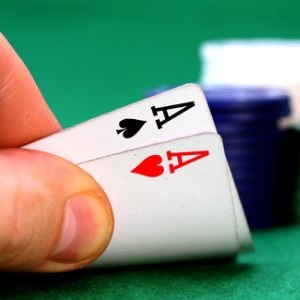
Weaving Through 9,999 Opponents
author's experience in a $100K Holiday freeroll poker tournament at Full Tilt Poker, detailing the strategies employed, challenges faced, and the unexpected luck that led to a triumphant win among 10,000 participants
Playing Pocket Pairs in Tournaments
various strategies and considerations for playing small to medium pocket pairs in poker tournaments, emphasizing the importance of understanding the situation and adapting one's play accordingly
Schooling – Playing in Loose Poker Games
the concept of "schooling" in poker, where a group of poor players, referred to as "fish," collectively protect each other in a game, making it challenging for skilled players to win
PLO Practice-Hand Quiz No. 2
Raising preflop, the combo float, and value-betting the river It's a $1-$2 blinds game, $5 to bring in.
Why Do Players Go on Tilt?
the psychological and emotional reasons behind poker players going on tilt, emphasizing that while bad beats and losses can trigger tilt, other factors like emotions, fatigue, boredom, and even alcohol can also contribute
Using Ranges to Make Better Decisions
introduces the concept of "ranges" in poker, explaining how players can assign a set of potential hands to their opponents based on observed actions, and then refine these ranges as the hand progresses
What Makes a Bad Poker Player
characteristics and traits that can hinder a person's success in poker, emphasizing the importance of mathematical understanding, discipline, long-term perspective, emotional stability, and ethical considerations
Poker Psychology : Rationalizing Decisions
the concept of rationalizing in poker, explaining how players often justify their decisions based on emotions or impulses rather than logical reasoning, emphasizing the importance of making decisions based on long-term expectations and the dangers of relying solely on instinct
Pot-Limit Omaha: The Bankroll Schedule
the importance of proper bankroll management in pot-limit Omaha (PLO), highlighting the game's inherent volatility and the need for a larger bankroll compared to no-limit hold'em, and provides a detailed bankroll schedule for various PLO games
